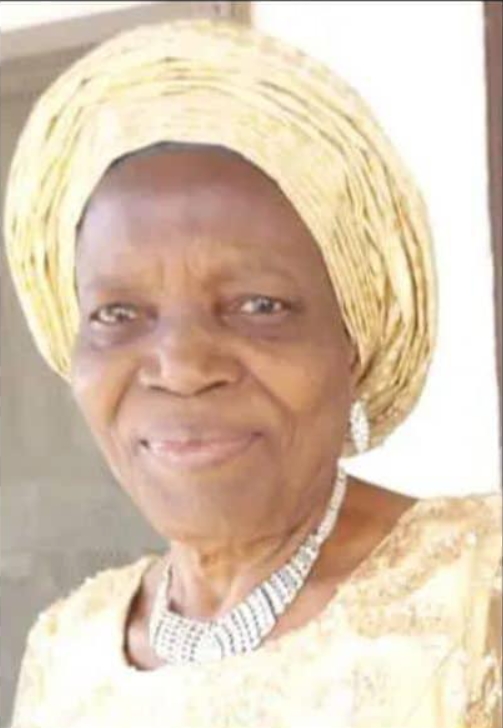Maritime Agencies
MAN, ORON: Maritime Lecture Series Updates Cadets on Emerging Trends in Seafaring
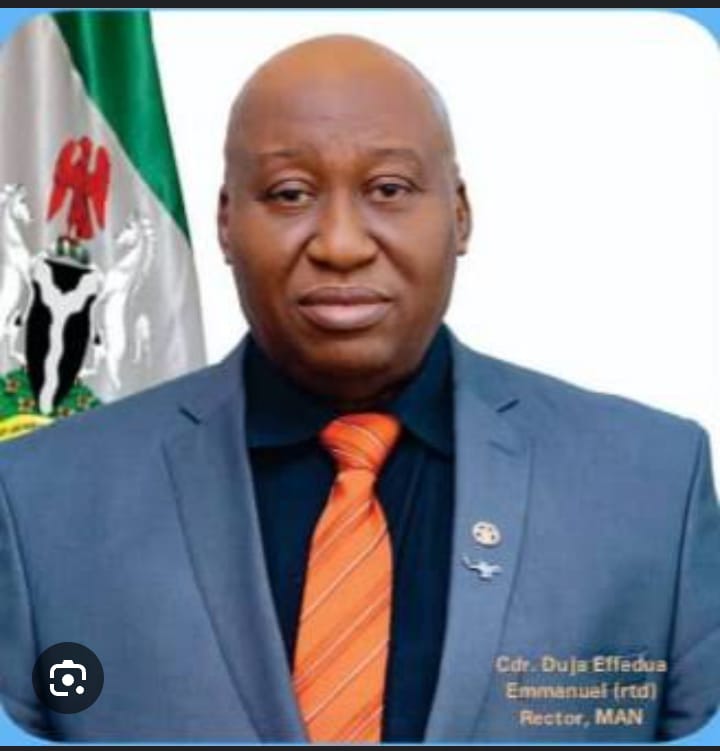
By Izuchukwu Ozoemena
Since Nigeria’s maritime industry is turning into the major economic powerhouse of the economy, it has become necessary to invest in modern technologies and improve port facilities to accommodate larger vessels, handle increased cargo volumes while deploying automation in sea port operations.
Navy Commodore Duja Emmanuel Effedua (rtd), Rector, Maritime Academy of Nigeria (MAN), Oron, stated this during the 4th edition of the institution’s Maritime Lecture Series put together to update cadets, staff and stakeholders in Nigeria’s maritime industry on emerging trends in the sector.
According to the Rector, the maritime industry is the backbone of Nigeria’s economy since 80% of the country’s international trade depends on maritime.
As one of the major oil-exporting countries in the world, he continued, Nigeria is also a huge exporter of agricultural commodities such as cocoa, soya bean, soghum, ginger and many more.
“We know there are the challenges of inadequate infrastructure, manpower and regulatory issues which are being tackled to get a workable framework and address other administrative hiccups. But amidst these challenges, the strategic location of Nigeria positions her to serve as a hub for regional and international trade within Africa. This alone is a huge opportunity which we take advantage of,” Effedua remarked.
Speaking on the topic ‘Safety of Lives at Sea: Wither Its Legal Conundrum’, foremost maritime lawyer, Mrs. Jean Chiazor Anishere (SAN) used the famous ‘Titanic’ of old as a graphic illustration of a system that took safety matters for granted.
Builders of the ‘Titanic’, she said, failed to make serious provisions for passengers and crew safety. The sinking of the ‘Titanic’ gave birth to SOLAS Convention which Nigeria domesticated under Section 215 of the Merchant Shipping Act of 2007.

Mrs Jean Chiazor Anishere, SAN
The Senior Advocate of Nigeria made her lecture session interactive and lively, providing opportunity for cadets to ask questions and receiving valuable answers; insightful information.
Anishere stated that key areas that should be looked into in bringing Nigeria’s maritime laws up to speed with current trends include a realistic assessment of the evolving maritime landscape as well as harmonization of safety standards. Others are hull construction, vessels structural integrity and firea safety standards.
Rev (Engr) Emmanuel Ilori, marine engineer and prominent member of the Association of Marine Engineers and Surveyors (AMES) also presented a paper at the event.
Falcon Watch Online Daily recalls that at a previous edition of the lecture series two months back, Dr Emeka Akabogu, maritime lawyer and Senior Partner, Akabogu Legal, Lagos, commended the Rector for making the Maritime Academy of Nigeria a pride for Nigeria, the West African subregion and Africa within so short a time.
“He has shown that anything in this country can work if persons appointed in positions of responsibility are passionate on delivering values, focused in the management they are in, and are knowledgeable in the sector and industry in which they are appointed”.
“With the state-of-the-art facilities I have seen here, I am very impressed. It tells me, and I can say without equivocation that, seafarers programmes (on) which Nigeria has been spending millions every year can very effectively be achieved through the Academy.”
“At the Maritime Academy of Nigeria (MAN), Oron, Nigeria, from what I have seen, I am sad that we still send out people from Nigeria to different parts of the world for training”.
“If the money we spend training
people abroad is invested here, the Academy would have no rival in the world”.
Similarly, Falcon Watch Online Daily recalls, Mr. Emmanuel Maiguwa, President, Alumni of Maritime Academy of Nigeria, Oron (AMANO) identified smart ports as the way to go. He urged the country to embrace smart ports in order to leverage on advanced technology to overcome challenges posed by port congestion, avoidable delays and human interference in port operations.
Speaking in the same vein through Dr Ibifubara Ayaobu-Cookey, the Director of Aquaculture, Institute of Oceanography and Marine Research, Lagos, Prof (Capt) Abiodun Sule equally commended the Rector and his team for being in tandem with the mission, vision and goals of the Academy.
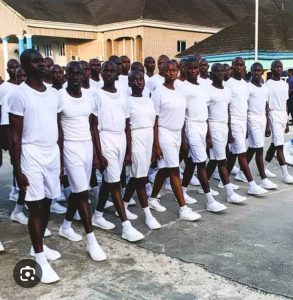
Seafarers in training
The Maritime Lecture series is part of the vision and strategies of the Rector to groom and prepare cadets of the Academy for life after their training at the school.
Since the Lecture Series was birthed, many maritime experts, technocrats, Naval Chiefs (serving and retired) and others have featured as guest speakers. As conceived by the Management of the apex nautical school, the overall idea is to prepare and position the cadets to take up duties and responsibilities when they graduate from the Academy.
Maritime Agencies
We’re Ever Proactive In Intercepting Prohibited, Falsely Declared Goods, says Controller Onyeka.
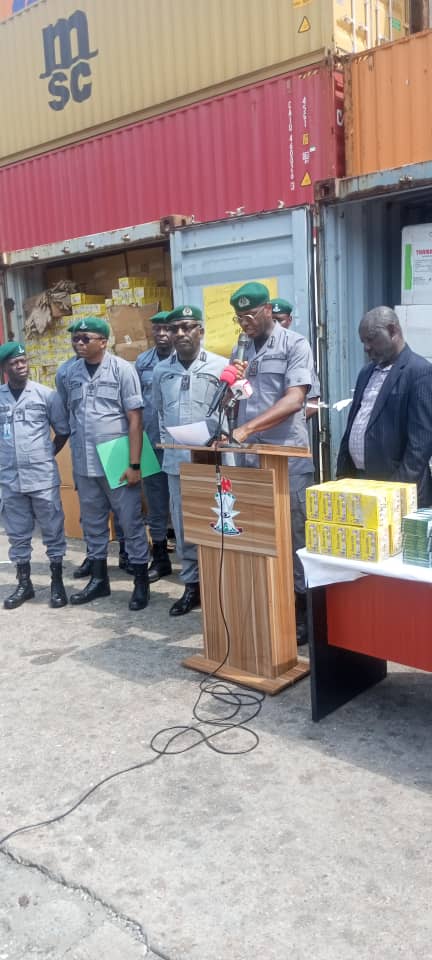
By Izuchukwu Ozoemena
In line with the core mandate of the Nigeria Customs Service, the Tincan Island Port Command is ever proactive in intercepting prohibited and falsely declared goods even as it remains committed to facilitate legitimate trade while contributing significantly to revenue generation.
The falsely declared goods include controlled pharmaceuticals, arms and ammunition, narcotics and other items capable of undermining public safety, security and stability.
The Customs Area Controller (CAC), Comptroller Frank Onyeka stated this in Lagos, Friday, while formally handing over three (3) units of 20 ft containers containing expired pharmaceutical products to the National Food and Drug Administration and Control (NAFDAC) for appropriate regulatory action.
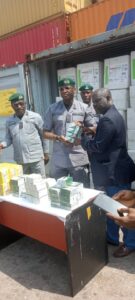
”The containers include two units with numbers PONU031958/6 and MSKU 711656/0 which were found to contain expired Tramadol tablets,” Onyeka announced.
”These consignments were thoroughly examined and the result revealed that the first container contained 86 cartons of Vingil Tramadol BP 50 mg while the second container held 250 cartons of the same expired Tramadol product”.
”The third container with number MSKU413519/1 was found to contain 370 cartons of expired Declofenac Sodium BP 50 mg tablets without a valid NAFDAC registration number, making the consignment illegal and dangerous for public use.”
Beyond these seizures, he explained, the Tincan Command has continued to record notable achievements in recent times through intensified cargo examination, improved intelligence gathering and sustained enforcement operations. These achievements are the result of deliberate strategies anchored on discipline, integrity and strong inter -agency collaboration.
He showed special appreciation to the operatives of NAFDAC for their consistent cooperation.
”Our synergy has continued to yield positive results particularly in ensuring that fake, substandard and expired drugs are intercepted before reaching the Nigerian populace.”
He equally commended officers and men of the Command for being resilient and committed to duty, a development that has continued to strengthen the credibility and operational effectiveness of the Command.
”Furthermore, I express our sincere appreciation to the Comptroller-General of Customs, Bashir Adewale Adeniyi, PhD, MFR, psc (+) for his purposeful leadership and strategic reforms which have empowered our operations.”
The CAC later handed over the prohibited pharmaceuticals to Mr Kareem Taiwo Adekunle, the Chief Regulatory Officer (Investigation and Inspection Directorate), NAFDAC, Apapa.
Maritime Agencies
Zone ‘A’ Coordinator, Mohammed Babandede, Visits Apapa Command, Commends Officers’ Sterling Performance.

By Izuchukwu Ozoemena
Officers and men of the Apapa Customs Command have received a special commendation for maintaining an exceptional performance in revenue generation, anti-smuggling operations and trade facilitation throughout 2025.
Mohammed Babandede, Assistant Comptroller-General of Customs (ACG) and Zonal Coordinator, Zone ‘A’ of the Nigeria Customs Service handed down the commendation during his familiarization visit to the Command, Thursday.
Chief Superintendent of Customs, Isa Sulaiman, the image maker of the Apapa Customs Command disclosed this in a press release.
Addressing officers and men during the visit, the image maker stated, the Zonal Coordinator explained that the purpose of his coming was to acknowledge the operational challenges faced by the Command, appreciate its notable achievements and further boost the morale of personnel who have consistently surpassed expectations, particularly in revenue collection where the Command exceeded its annual target.
”The ACG also lauded the Command’s sustained anti-smuggling efforts, especially the significant seizures of narcotics and other illicit substances including cocaine and tramadol, describing these interceptions as critical contributions to national security, public health and societal safety. ”
Effective enforcement, the ACG emphasized, remains fundamental to creating a secure environment for legitimate trade to thrive.
While noting that the core responsibilities of the Service extend beyond revenue generation to include national security, public safety and trade facilitation, the Zonal Coordinator commended the Apapa Command for its effective inter-agency collaboration. He urged officers to deepen cooperation with sister agencies, particularly in the deployment and promotion of trade facilitation tools that have positioned the Service at an upper-class operational rating.
The Zonal Coordinator further stressed the importance of integrity, reputational management, mentorship and capacity building within the Command. He urged senior officers to transfer knowledge and experience to younger officers while also drawing attention to the importance of officers’ welfare and health, disclosing that drug tests would be conducted across Commands. He advised officers to remain health-conscious for effective service delivery.
In his remarks, the Customs Area Controller, Apapa Area Command, Comptroller Emmanuel Oshoba, expressed appreciation to the Zonal Coordinator whose February 5 visit was motivating and timely. He reaffirmed the Command’s commitment to sustaining its performance in revenue generation, enforcement, trade facilitation, inter-agency cooperation and ethical conduct in strict adherence to the Nigeria Customs Service Act, 2023 and the policy thrust of the Comptroller-General of Customs, Dr Adewale Adeniyi.
Customs
Freight Forwarders Warn FAAN To Halt New Charges In Airport Cargo Operations or Risk Rumble in the Sector .

By Izuchukwu Ozoemena
If the recent arbitrary increase in charges by the Federal Airports Authority of Nigeria (FAAN) is not reviewed, cargo operations across airports nationwide risk disruption, prompting huge losses in government revenue, airports freight forwarders have warned.
Leaders of major associations operating at the nation’s airports stated this in Lagos, Tuesday. The associations included the National Association of Government Approved Freight Forwarders (NAGAFF), the Association of Nigerian Licensed Customs Agents (ANLCA), African Professionals Freight Forwarders and Logistics of Nigeria (APFFLON) and NAFFAC.
Featuring at the briefing, among others, were Dr. Segun Musa, Deputy National President of NAGAFF in charge of Air and Logistics, and Mr. Tope Akindele, Chairman, Airport Chapter of ANLCA.
Speaking on behalf of the groups, Dr. Musa traced the controversy to an agreement reached with FAAN in 2010 over the collection of a seven-naira-per-kilogram levy on cargo, which, according to him, was tied to the allocation of land for the development of a cargo village at the airport.
He explained that prior to that agreement, FAAN had been collecting two naira per kilogram, a charge the freight forwarders had challenged on the grounds that FAAN, having concessioned cargo operations to companies such as NAHCO and SAHCOL, was not directly provding cargo handling services.
He said the associations had formally written FAAN at the time, arguing that the two-naira charge was illegal, a move that led to prolonged negotiations that reportedly lasted for about two weeks and disrupted activities at the airport. According to him, an eventual compromise was the introduction of the seven-naira charge in exchange for the allocation of land to build a cargo village, a deal he said formed the basis for the current arrangement.
“The seven naira we are talking about is attached to this land. It is like rent on this land,” Musa said, insisting that FAAN had no right to impose fresh charges without first engaging stakeholders. He argued that, just as the Nigerian Ports Authority (NPA) relates with terminal operators after concessioning the seaports, FAAN should deal with its concessionaires rather than directly imposing charges on operators.
The freight forwarders also raised financial concerns, claiming that FAAN had already made substantial sums from the seven-naira levy over the years. Musa said that in 2010 alone, FAAN collected over one billion naira from the charge and that from 2010 to date, the cumulative amount would be far higher than the value of the land allocated for the cargo village.
The immediate trigger for the latest dispute, according to the associations, is FAAN’s decision to increase the existing charges without consultation, a move they said was followed by a threat letter warning of possible demolition of their secretariats. The groups described this as coercive and counterproductive, stressing that they were not opposed to a review of charges but it must be done through dialogue.
Instead of imposing higher fees, they argued, FAAN should work with operators to create an enabling environment that would increase cargo throughput, which in turn raise revenue. “The more cargo we have, the more revenue they generate,” Musa said, adding that the present approach would only hurt all parties involved.
Mr. Tope Akindele, Chairman of ANLCA Airport Chapter, said the ongoing standoff had already begun to affect revenue generation. He noted that cargo activities had slowed in recent days because many operators were staying away from work in protest. According to him, if a concessionaire that used to make about one billion naira weekly is now making roughly half of that, continued disruption could lead to even worse outcomes for government revenue.
He stressed that the associations were not trying to sabotage government earnings, noting that any revenue yet to be paid due to the slowdown would still be collected once normal operations resume. “We want government daily revenue to continue. We are not frustrating government revenue. We are ready to continue paying, but let us dialogue within the shortest time so our job can commence,” he said.
Akindele also argued that globally, increments in charges are usually benchmarked around 25 per cent, adding that this was the standard the associations were willing to consider. Beyond that, he said, stakeholders should jointly explore ways to increase cargo volume rather than rely solely on higher levies.
Other speakers at the briefing raised concerns about what they described as multiple layers of charges on the same cargo. They pointed out that cargo handlers and airlines already collect various fees per kilogram, which are ultimately linked to FAAN, and argued that imposing additional charges on freight forwarders amounts to double or even triple taxation within the same cargo chain.
One of the speakers claimed that aside payments to cargo handlers and airlines, some charges could reach as high as 30 naira per kilogram in certain instances, warning that piling more levies on operators would further increase the cost of doing business and weaken the competitiveness of Nigeria’s air cargo sector.
The associations also recalled that the original dispute over the legality of the levy had not been fully resolved in court, but was set aside in favour of a mutual understanding aimed at keeping the industry running. They warned that if FAAN proceeds unilaterally or attempts to formalise the new charges without broad stakeholder agreement, the matter could return to the courts.
The freight forwarders called on the Minister of Aviation to intervene and prevail on FAAN to open talks with stakeholders. They stressed that they were not protesting, not carrying placards, and not seeking confrontation, but were instead asking for engagement that would lead to a mutually beneficial resolution.
They warned that if cargo operations at airports across the country were to grind to a halt, the wider economy would suffer, describing such a scenario as a “lose-lose” situation for operators and government alike. Despite the tension, they said they had advised members nationwide to continue working and avoid actions that could escalate the situation.
The associations assured the Federal Government that once negotiations begin, normal operations would resume immediately, with the existing status quo maintained pending the outcome of discussions. They also reiterated their willingness to work with FAAN and other government agencies to grow cargo volumes and, by extension, government revenue.
“We are here to appeal. We are not here to threaten or to protest or to cause a breakdown of law and order,” Musa said. He added that most operators depend on daily airport activities to feed their families and sustain their businesses.
-
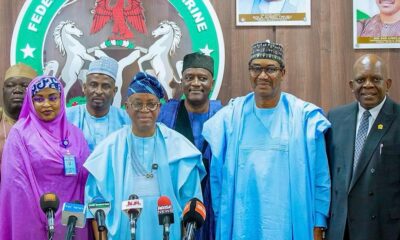
 Customs3 weeks ago
Customs3 weeks agoFG Inaugurates Nigerian Shippers’ Council Board, Highlights Need for Reduced Port Costs, Fair Pricing.
-

 Customs2 weeks ago
Customs2 weeks agoKLT Customs Surpasses 2025 Revenue Target By a Wide Margin, Clamps Down on Expired Imports.
-
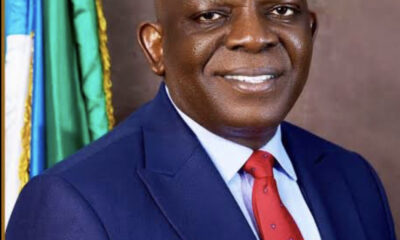
 Maritime Agencies3 weeks ago
Maritime Agencies3 weeks agoSuspend Charges Review, Engage Stakeholders, Shippers’ Council Tasks Shipping Companies
-
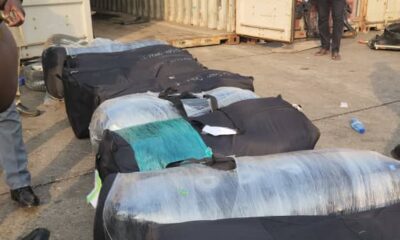
 Maritime Agencies2 weeks ago
Maritime Agencies2 weeks agoWAR AGAINST KILLER DRUGS: Apapa Customs, NDLEA Collaborate To Nab Huge Quantity of ‘Canadian Loud’.
-

 Maritime Agencies2 weeks ago
Maritime Agencies2 weeks agoOGUN AREA 1 CUSTOMS: Suspected Armed Drug Traffickers Mount Barricades, Attack Officers. Two Personnel Critically Injured.
-

 Customs2 weeks ago
Customs2 weeks agoLekki Deepsea Port: The Success Story of the Nigerian Ports Authority.
-
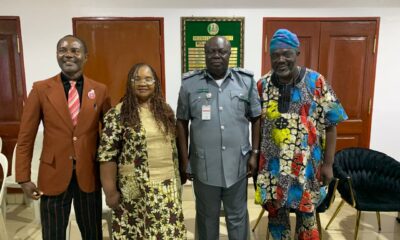
 Maritime Agencies2 weeks ago
Maritime Agencies2 weeks agoSeme Customs Raids Hideouts, Impounds 200 Bags of Smuggled Rice, Collects N2bn 3 Weeks into 2026.
-

 Customs5 days ago
Customs5 days agoFreight Forwarders Warn FAAN To Halt New Charges In Airport Cargo Operations or Risk Rumble in the Sector .

























